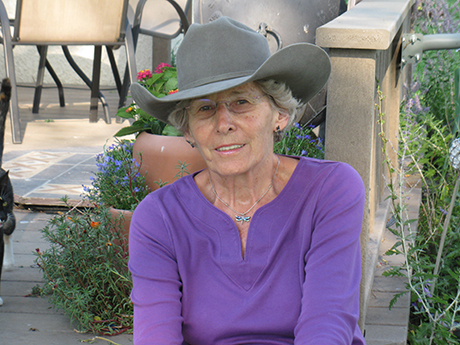“The opposite of faith isn’t doubt. It’s certainty. Once we know everything, we stop being actively engaged in the questions.”
Nadia Bolz Weber
Sometimes certainty is simply stubbornness. We marry ourselves to an opinion and hang onto it until our fingers are bleeding because we’re unwilling to explore the devil’s advocate option. We might have to change or modify our position, admit we’ve been wrong, or make an apology. Often, another name for certainty is pride.
We can easily make a case for the validity of our beliefs. Just quote the statement by your favorite candidate, or your unfavorite one. Quote a passage of scripture. Mention a time the person made a mistake, but not the time they admitted it, and apologized. But, as Paul Harvey used to say, there’s a rest of the story. Without context, it’s impossible to form an accurate opinion.
I spent years living in a black and white world, absolutely convinced that I knew right from wrong. Taking the word of people who were deemed experts on all sorts of issues. Never considering whether these people had any personal experience in the areas they addressed.
I was certainly certain. I was lazy, is what I was. Too lazy to ask the “why, and what about, and what does this mean,” questions. Too lazy to “go look it up,” as my junior high teacher used to say.
She’d never tell us how to spell a word. “Go look it up.” “How can I look it up if I don’t know how to spell it?” we argued. But we learned how and, ever since, my spellchecker has been the dictionary.
These days, I have a lot of doubt and very little certainty. I don’t trust anyone blindly. I want evidence; a lot of it. I pay attention to what people say, but a lot more attention to what they do. I’m pretty good at spotting manipulation, hidden agendas, and cutting to the chase. I ask more questions and explore the back stories.
Many years ago, I lingered over late-night pie and coffee with two gentlemen who had been divorced. As often happens in those midnight conversations, the talk turned personal. Both of my friends had dated off and on since becoming single, but nothing really worked out. One said, “I guess I just don’t really trust women.” His compadre agreed. I jumped in with this. “How about, ‘I don’t really trust myself.’” After a shocked look, and some consideration, they agreed.
When I ask the questions, and seek out information that resonates with my gut, I can trust myself to make good choices, which allows me to have more faith and less doubt. Arguing with someone who is certain about a particular subject is stupidity on my part. It’s more productive to ask why they believe as they do. It’s risky though. If they offer proof I haven’t considered, I might have to modify my opinion or become more tolerant. Scary thought, isn’t it?
Meet me here next week and meanwhile, do your best. Somebody might like it.

